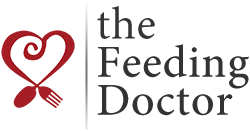Love Me, Feed Me is here, like sending my first-grader off to school...
I am thrilled to announce that my book, Love Me, Feed Me, is available on Amazon.com
“I wish I had read Love Me, Feed Me before we had our son with us. It would have saved us so much worry and heartache. Our family has been transformed by the Trust Model and Dr. Rowell’s practical advice. It felt like she was describing our situation to the letter, when we felt like we were the only ones. This book has helped more than I would have imagined, both with our biological son’s picky eating and our adopted son’s intense interest in food. As a bonus, the practical, science-based information will help me take better care of my patients.” — Ruth C., adoptive mother and Family Nurse Practitioner
A few weeks ago, I watched my first-grader get on the bus for her first day of school. With joy, sadness, and butterflies in my stomach, I waved and blew kisses (she still likes when I do that) and wondered how she would go out and touch the world. Would she help a Kindergartner find her room, or leave a "heart-print," as her teacher calls random acts of kindness?This unveiling of my book feels similar. Hours of research, reading, writing, re-writing, conversations, interviews, reflections on my interactions with my clients and now, here, in my hand is this book. This 1.7 pound book that I have longed to offer to clients and others who need support desperately. Would this book be on-target? (I think so, at a workshop where I took questions for an hour, almost every single question from these adoptive parents was something I covered in the book.) Will it reach others and help parents transform difficult feeding relationships as I hope it will? As I shipped off the pre-orders last week, I realized I have butterflies for this baby too...About 18 months ago, I decided to get serious about writing the book when in one day I got calls from two mothers on opposite sides of the country who had adopted little girls from Ethiopia, had been instructed to limit their intake to "prevent obesity," and had children who were completely obsessed with food as a result. We're not talking about hoarding and survival behaviors common when children have experienced food scarcity, but prolonged food obsession due to restriction. (This is something I am seeing increasingly in all of my clients, adopted or not as the worry over "obesity" distorts feeding.) These two families were able to turn things around, but I felt compelled to write down the process, the words from mothers like these as a resource for other parents. I dream that if parents read this book before their children are with them, it may prevent "worry and heartache," as Ruth experienced.The book is a practical, relationship-building guide for fostering and adoptive parents, but is appropriate for ALL the families I work with. Ironically, by reaching out to the adoptive and fostering communities, it might make parents of biological children think, "Well, this book isn't for me because my child isn't adopted." I hope not. (I wrote the book in part because I heard many an adoptive parent say, "The Trust Model won't work for us because my child was adopted...") Interestingly, many families with both biological and adopted children with whom I work notice that all of their children benefit from the Trust Model. (See www.ellynsatter.com)Why I think LMFM is a great resource (if I do say so myself):
- Lots of parents, with children of all ages, share their triumphs and challenges with feeding. Be inspired by parents who have been there. This book is filled with the wisdom of parents.
- I bring in a lot of science and the studies that support what I do with clients, but the book is accessible, and even funny at times, so I'm told.
- It's user-friendly with a great index so you can find what you need to know now, and then read the rest in all your free time (ha!)
- It outlines the scary transition, explains emerging skills, deals with common obstacles and pit-falls in an accessible way, helps you trust your instincts, recognize when something is working, and when it is harming (feeding therapies for example).
- Some folks I really respect have read the book and recommend it. Here is a sampling from the "advance praise" section:
So, with excitement and anticipation, I put this book out there with hopes that it will help families find their peace and joy at the family table. For the families where individual consultation isn't an option, I wanted to get down the essence of a healthy feeding relationship, from the philosophical to the day-to-day practical, that I share with my clients.What are your struggles with feeding and weight worries? What information are you looking for? If you read the book, I'd love to hear from you, what helped, where you needed to hear more. Thank you all for your comments and support over the years. Now go order the book and tell your friends to as well! Just kidding. Kind of :)

